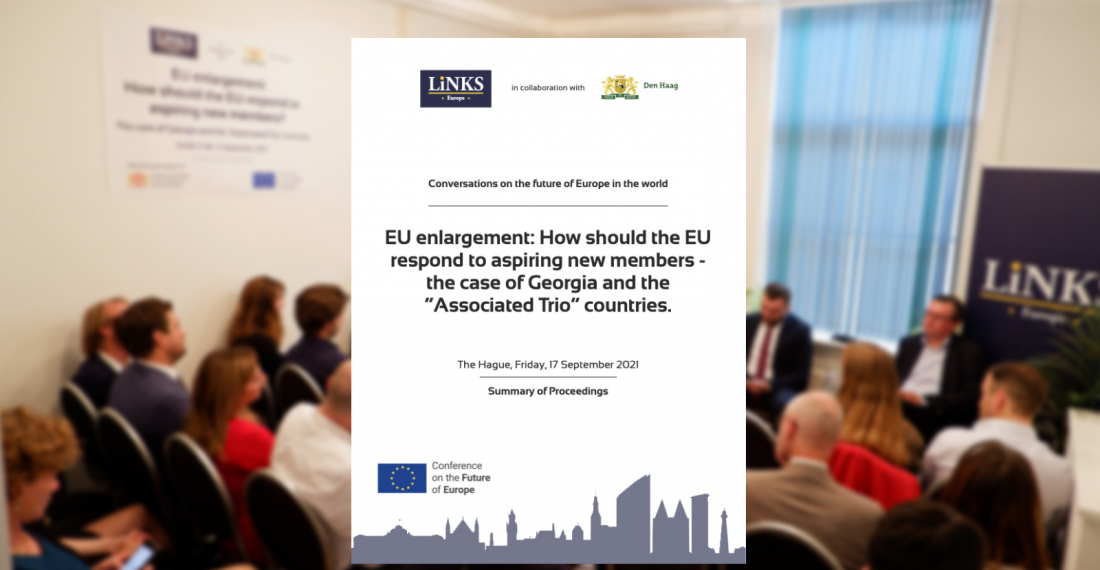On Friday 17 September, LINKS Europe, in association and with the support of The City of The Hague, hosted the first in a series of events titled ‘Conversations on the future of Europe in the world’, at its offices in The Hague. The series is in the framework of the EU’s ‘Conference on the Future of Europe’ process. After welcome remarks by the Director of LINKS Europe, Dr Dennis Sammut, and Mr Jesse van Velzen on behalf of the International Office of The City of The Hague, participants discussed the topic: EU enlargement: How should the EU respond to aspiring new members - the case of Georgia and the “Associated Trio” countries.
The conversation, moderated by Dennis Sammut, started with short presentations by Dr Maja Vodopivec, Assistant Professor at the University of Leiden; Giorgi Nakashidze, Chargé d’Affaires a.i. at the Embassy of Georgia in the Netherlands; and Tony van der Togt, Senior Research Associate at the Clingendael Institute in The Hague. In the second part of the conversation, those present – which included students, diplomats, and concerned and interested citizens of The Hague – expressed opinions on the topic under discussion. In all, 22 members of the audience aired their points of view in brief comments after the presentations of the panellists.
Read the full summary here [also in Dutch].







